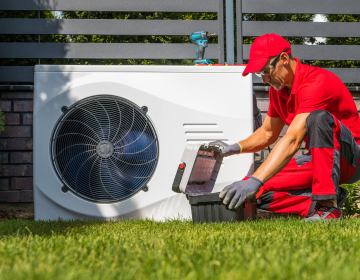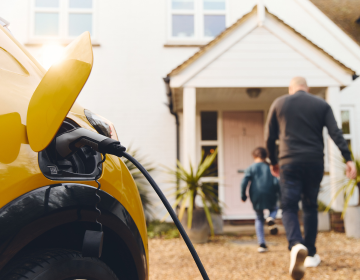About us
Sava provides education, technology services and professional services to help look after the UK’s housing stock. There are 29 million residential properties in the UK, with a combined value of over £7.4 trillion. They are a national asset of the highest social and economic importance. And at an individual level, the home provides belonging, identity and privacy.
Residential surveyors keep the housing market moving by giving home buyers critical information on the most important purchase of their life. They also provide expert valuations to enable mortgage lenders to manage their lending risk. Residential surveyors also provide specialist advice on issues such as technical defects, low energy retrofit, and legal disputes.
Sava provides training and qualifications for new entrants to join the profession, as well as supporting existing surveyors to develop their skills and knowledge.
Our qualifications
· Diploma in Residential Surveying and Valuation
· Certificate in Residential Valuation
· Diploma in Residential Surveying
· Identifying Invasive Non-Native Plants
· Law and Management of Invasive Non-Native Plants
If you are looking for a pathway into residential surveying, the Diploma in Residential Surveying and Valuation is a unique qualification that allows you to join the profession. It’s part-time and there are no formal entry requirements. Many learners who study our Diploma in Residential Surveying and Valuation have experience working within the built environment. Those already familiar with property and construction already have the upper hand when it comes to studying as there is already a wealth of knowledge upon which to build.
Testimonial
“I enjoyed working in property but hated being an agent and didn't enjoy the emotional rollercoaster of it - or the sales calls. I wanted a career that was more professional and respected. I have a history of building/electrician/plumbing in my family, and it felt like it was my calling in life to be a surveyor. It has been the best thing I have ever done. Great course content, perfectly targeted for the job role after the course, excellent lecturers and easy to understand and progress through at your own pace.”
- Rebecca Brydon, Sava graduate and Residential Surveyor and Valuer
If you would like to find out more about our qualifications, please do not hesitate to get in touch.
T: 01908 442158
E: hello@sava.co.uk
W: https://sava.co.uk

With a combined value surpassing £7.4 trillion, the UK’s 29 million residential properties represent a vital national asset, and for homeowners, provide belonging, identity and privacy. There are many roles in the world of property that contribute to the upkeep of these homes, but no one gets more up close and personal with the bricks and mortar than a residential building surveyor.
It is the job of a surveyor to identify and report on a property’s risks, defects and opportunities, often through a pre-purchase inspection and survey. Homebuyers look to surveyors to provide them with an unbiased view of their potential new home and give them peace of mind before they buy.
But how do you get into surveying? Don’t you need a degree? The answer is no, as former estate agent, Natasha Palczuk, found out when she looked into making the transition from selling houses to surveying them by undertaking a residential building surveying qualification.
For Natasha, university wasn’t an option due to existing commitments and the need to keep working, which is why she chose the Diploma in Residential Surveying, a part-time, vocational qualification delivered by training provider, Sava.
Since qualifying as a surveyor, Natasha has landed an exciting career with a large corporate surveying firm. We caught up with Natasha to find out what inspired her to join the surveying profession, to discover more about her experience studying for the Sava diploma, and to see how her life has changed.
What was your background before deciding to join the surveying profession?
I worked in estate agency but wanted something more that would give some longevity to my career, so I decided to make the transition over into surveying.
What made you choose Sava as your route into the profession?
Sava was recommended to me by one of my friends who was actually doing the Sava surveying diploma at the time. I ended up going to some of the open days and speaking with assessors and the Sava Training team, and I realised that there was this wealth of knowledge on offer that I could absorb during the part-time programme whilst still earning. That was a big part of it for me, being able to keep working whilst studying and being able to balance the two.
How did you find completing your qualification?
I found the qualification really worthwhile. It was hard work, but it was worth it to get me where I am today, employed by a national surveying firm where I also still have some autonomy over my day and how I work.
What are you up to now that you’re qualified?
Now I’m qualified, I’m employed by national surveying firm, e.surv, where I’m involved in various different aspects of the company. I deal with everything from mortgage valuations and level 2 property inspections to answering client queries and calls. I also enjoy assisting the Training team with new trainees, even taking on my own mentees to help develop their AssocRICS qualifications.
It’s great that I can work from home as it offers a better balance to my day and more flexibility with how I utilise my time and how I manage my diary on a daily basis. What I love about this as an industry is once you’ve done the work you’ve done the work, it’s not a traditional job where you’ve still got to sit there until 6pm to clock in your hours.
Now that you’ve joined the surveying profession, what are your aspirations for the future?
Long term, I see myself expanding my knowledge within the surveying industry and then hopefully passing that knowledge on in the training sector in the future.
Can you sum up in a couple of words how your surveying qualification has impacted your life?
Freedom. Both financially and in my general life. It’s been a game changer, it really has.
What advice would you give to anyone looking to join the surveying profession?
If you’re looking to gain a surveying qualification and are considering the Sava diploma, it’s worthwhile speaking to surveyors, gaining some knowledge of the industry and possibly doing some shadowing with a local firm so you can get a feel for the role.
Would you recommend the Sava diploma to others?
I would absolutely recommend the Sava diploma. It offers a great way to balance your time between learning and working, but it’s also the number of trainers and the amount of knowledge on offer that is really beneficial to someone looking to step into the career.
To find out more about becoming a residential building surveyor through the Sava Diploma in Residential Surveying and Valuation, please visit Sava’s dedicated surveyor training page or get in touch with a course advisor at hello@sava.co.uk.



.png)